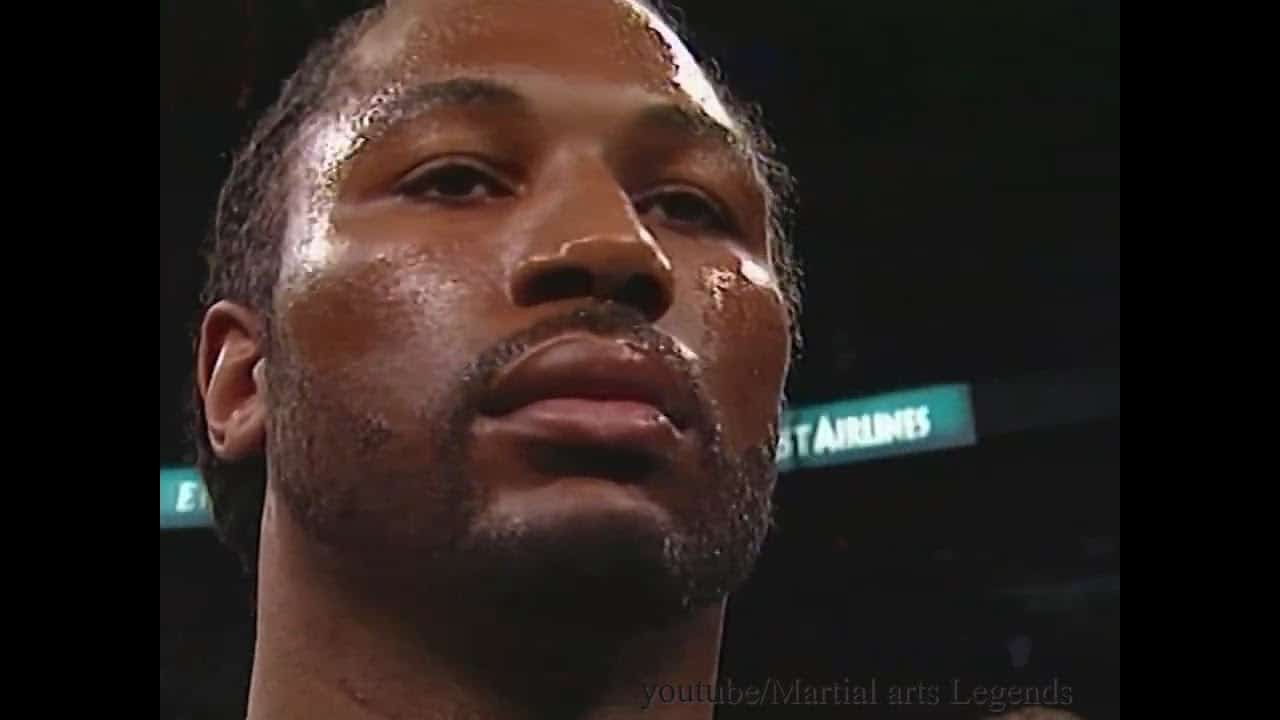Rewind to 1994, and the heavyweight division was a wholly different place for British big men. Back then, British heavyweights entered the ring with a bad rep – they couldn’t really fight. And, as ‘proof’ of this, the world heavyweight title had eluded Great Britain for decade upon decade, with the best heavyweights these shores had to offer often being left horizontal. Knocked out. Laughed at. Beaten. Sure, some tough heavies from the UK had earned respect, such as Tommy Farr. But the trophy cabinet was empty.
Lennox Claudius Lewis changed all that.

In time.
Though plenty of people argued Lewis was a Canadian (he had represented his country of birth at two Olympics, winning gold in 1988), Lewis – who moved to the UK at age 12 – maintained he was a true Brit. And, in 1993, with a win over Tony Tucker, Lewis became the first Brit to win a world heavyweight title since the great Bob Fitzsimmons had won the real thing back in 1897, losing it two years later.
Lewis won a version, the one Riddick Bowe had dumped in the trash, yet he had made history all the same. And some people, not just the British fans who now “claimed” Lennox as one of their own, felt this 6’5”, athletically gifted boxer-puncher just might be the best in the world at the weight. In time, such thinking would be proven correct. But first came a big bump in the road in the form of Oliver McCall and his ace trainer Emanuel Steward.
Making the third defence of the WBC belt he had picked up (laughs) by beating Tony Tucker, Lewis met the tough and already grizzled (at age 29) Oliver McCall. Steward had armed “The Atomic Bull” with a simple yet at the same time quite brilliant game plan: throw a right hand at the chin as hard as you can as soon as Lewis throws his – and then drops his hands having done so.
In round two that night in London, it worked like a treat. Lewis, with the far less cerebral if far noisier Pepe Correa in his corner, duly slung out a right and then allowed his hands to drop having done so; just as Emanuel had noticed. McCall didn’t miss a beat, firing back with a right counter, with his eyes closed, decking Lewis in a flash. Lewis stumbled up, then stumbled some more, before the ref called a halt. Lewis never saw what hit him, while McCall never saw what he’d hit Lewis with! But McCall ‘felt’ the shot, just as he had seen the opening.
Lewis’ career was changed drastically, yet the good news wound up outweighing the bad. Steward had always said Lewis was the better, more naturally talented fighter, and soon after the McCall disaster, Lewis was being trained, educated and bettered by the Kronk genius. The rest is history.
But how different things would have been had Lewis opted to stay with Correa, if Steward had opted to stay with McCall! As it turned out, both guys were far too smart for that.
